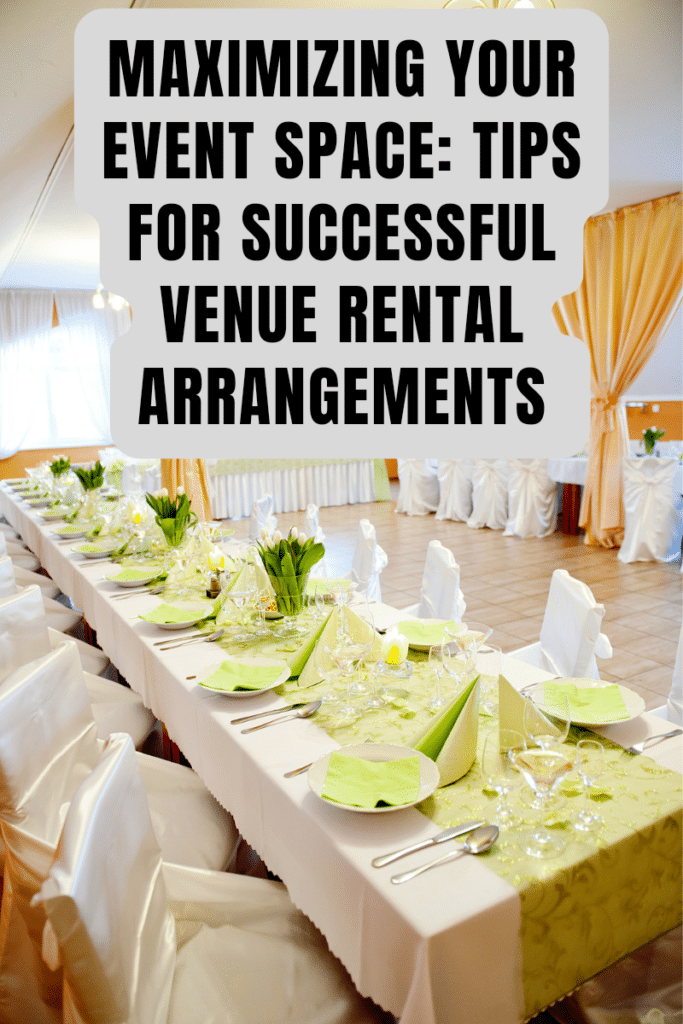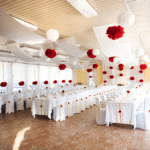When it comes to coordinating an event, your chosen venue holds the power to make or break the experience. Yet, it’s more than just selecting a site off a list; making the most effective lease agreement requires thoughtful planning, an eye for detail, and savvy negotiation skills. Let’s explore how to maximize your event space and explore some tips for successful venue rental arrangements.
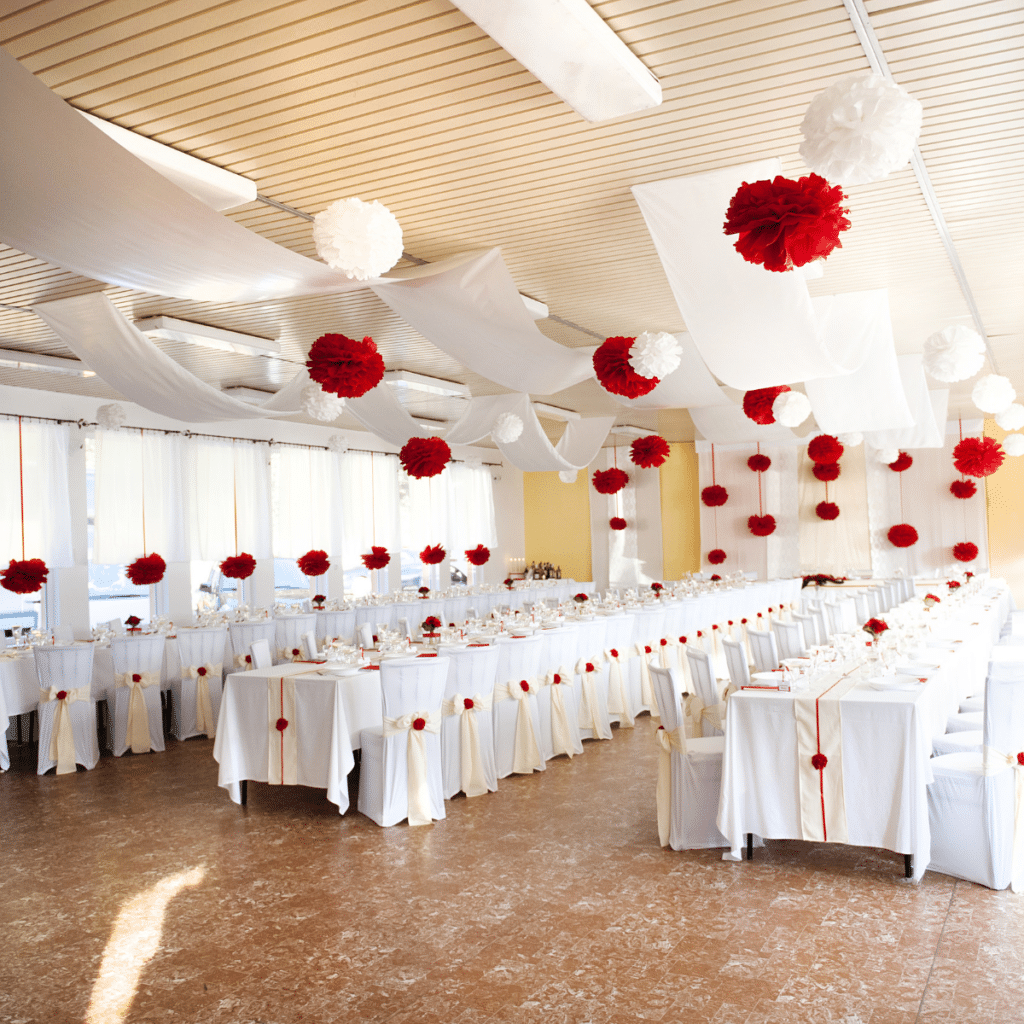
Understanding Your Event Needs
Before you dive into the venue-hunting process, it’s crucial to nail down a comprehensive understanding of your event needs. Think about the type of event, expected guest count, technical requirements, catering needs, and the desired ambiance. Flesh out these details beforehand to streamline your venue selection process and match the space to your event rather than adjusting your event to fit the venue.
Factors to consider when choosing a venue
- Location: Your venue location should be accessible and convenient for your guests, taking into account proximity to airports or public transportation for out-of-towners. Also, consider nearby accommodations, parking availability, and traffic patterns.
- Capacity: Your chosen venue must comfortably accommodate your guest count and allow for easy movement. Overcrowded spaces can lead to discomfort and safety issues.
- Facilities: Ensure the venue has adequate facilities like restrooms, kitchen space if catering on-site, and technical equipment if required.
- Layout and flexibility: Look for a venue that has flexibility in its layout to allow for customization according to your event needs, such as different seating arrangements or room for breakout sessions.
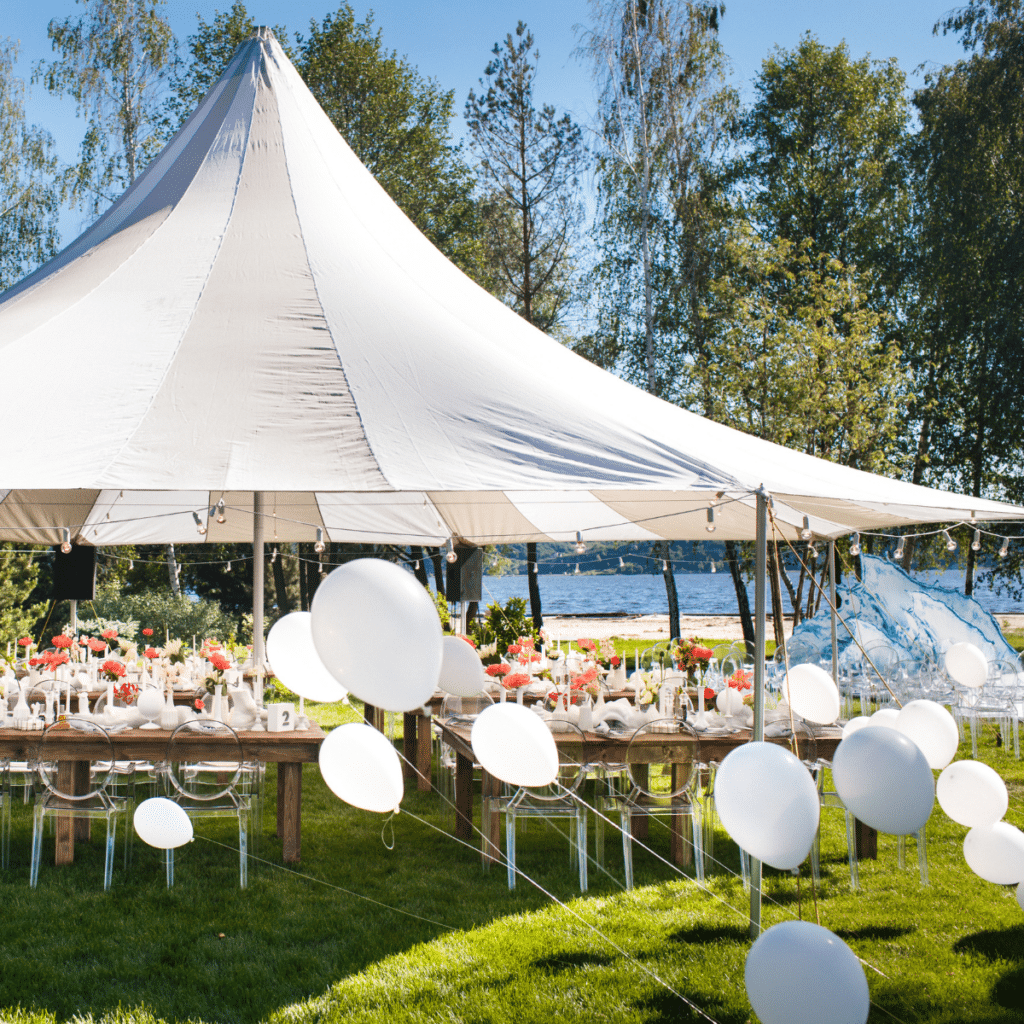
The Process of Securing a Venue
Securing the ideal venue for your event is a critical process that requires due diligence and attention to detail. Once you have identified a potential venue that aligns with your event needs, it’s essential to visit the site in person to evaluate its suitability accurately. During the site visit, take note of the venue’s facilities, ambiance, staff responsiveness, and any potential issues that might affect your event.
After the visit, reach out to the venue representative to discuss availability, pricing, and additional services. Remember to ask probing questions pertaining to cancellation policies, restrictions, and what’s included in the rental fee. Upon receiving satisfactory responses, proceed to review the venue rental agreement. Using a professionally-drafted template available at Lawrina will allow you to ensure all the terms and conditions, potential penalties, liability, insurance requirements, and payment schedules are clearly stated. If anything is unclear, consult with a legal expert to ensure your interests are protected.
Further, proceed to confirm the booking by signing the agreement and paying any necessary deposits. Always remember that this process may take some time, so it’s best to start early to avoid last-minute hurdles.
Checklist of questions to ask before signing a rental agreement
- What does the rental fee include? Are there any additional or hidden costs?
- What are the provisions regarding the cancellation of the venue booking?
- What are the accepted payment methods, and what is the payment schedule? Is there a deposit required, and if so, is it refundable?
- Are there any restrictions or policies I should be aware of (e.g., noise restrictions, decorating rules)?
- Who will be responsible for damages, if any occur during the event?
- Can I bring in outside vendors, or am I required to use vendors referred to or provided by the venue?
- What are the provisions if the venue is unavailable on the day of the event for reasons beyond control (e.g., natural disasters)?
- How much set-up and breakdown time is included in the rental agreement?
- Are there any stipulations regarding insurance? Do I need to provide my own event insurance?
- Can I view a clear outline of the venue’s space and its layout? Can these be adjusted to fit my event’s specific requirements?
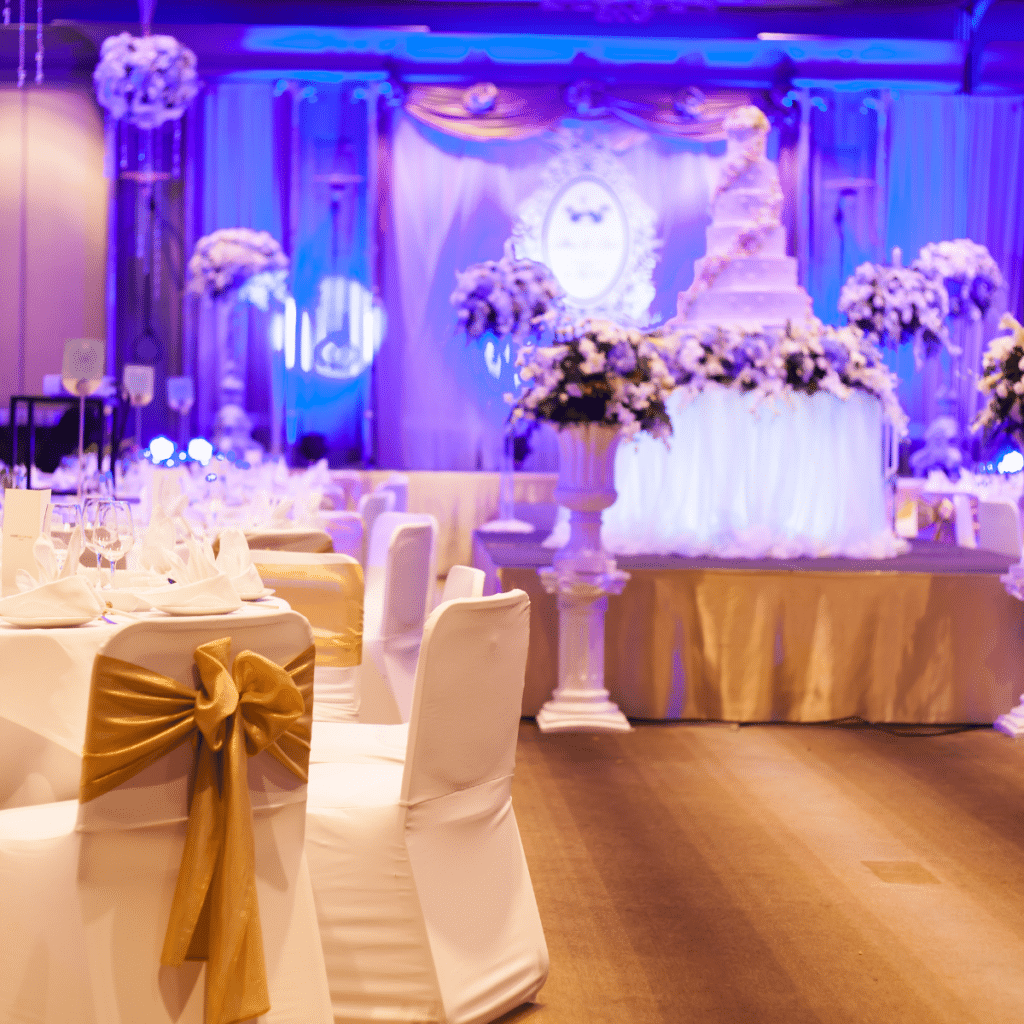
Optimize Your Venue Space to Enhance Guest Experience
Unlock the full potential of your venue through creative use of the available space and layout to captivate and engage your guests. Consider designing interactive areas, such as exhibits or networking zones, strategically placed in high-traffic areas to draw guests in and foster engagement.
Don’t overlook your venue’s vertical space. It can be effectively utilized for decorations, lighting fixtures, or hanging signage. Innovative use of uplighting, for instance, can dramatically change the atmosphere of the venue and set the mood for the event. Hanging decor or banners can draw attention, underline your branding, and deliver essential information without claiming valuable floor space.
To avoid overcrowding, ensure there is a mindful balance between the functional use of space and aesthetic elements. Accurate positioning of furniture, adequate space for movement, and sensible arrangement of stations (such as food and beverage stalls) can prevent congestion and promote a smooth flow of guests.
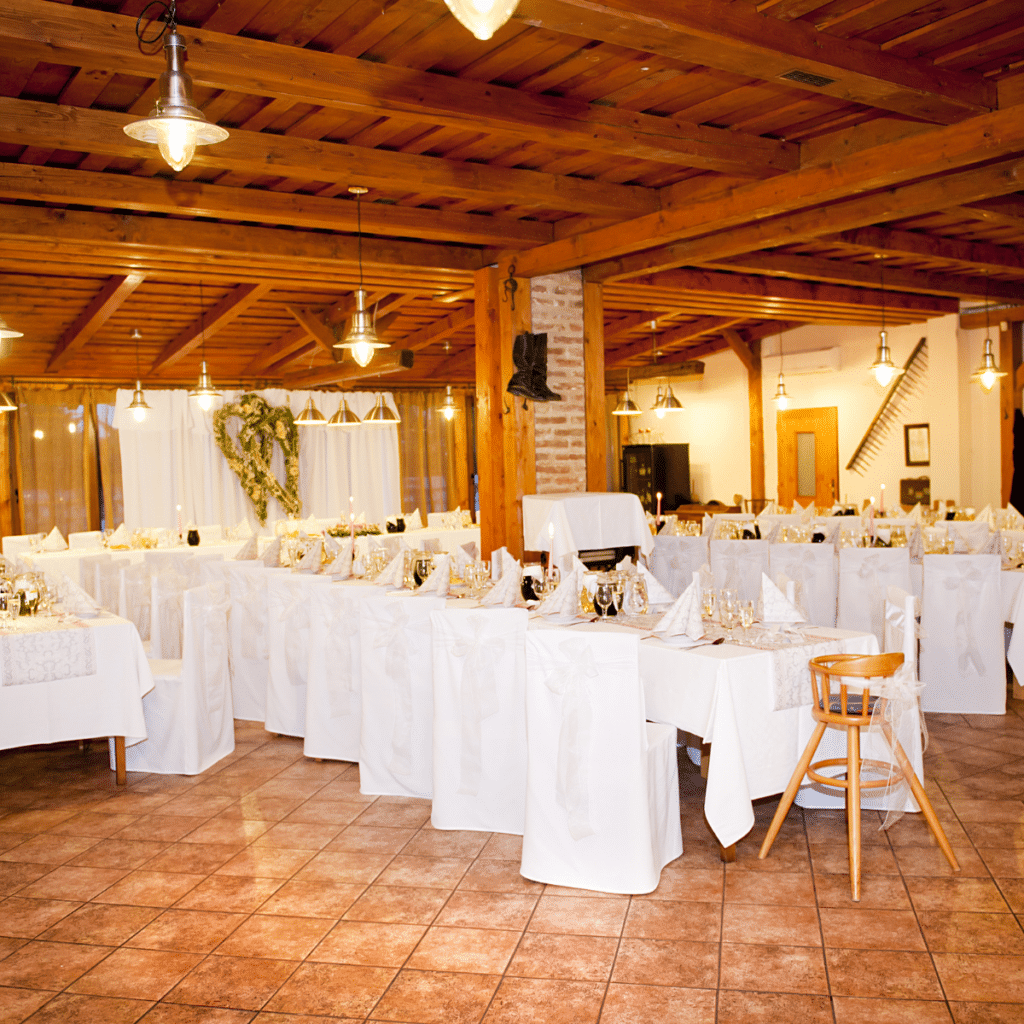
Building Relationships with Venue Providers
Building robust and enduring partnerships with your venue providers can prove to be exceptionally advantageous in both the short and long run. As experts in managing their spaces, they possess an unparalleled depth of knowledge when it comes to utilizing the venue to its optimal advantage. This can translate into practical advice for planning your event layout, suggestions for resolving any logistical challenges, or introductions to trusted local vendors.
Moreover, a strong relationship may open up opportunities for tailored arrangements that could extend beyond standard rental packages. These could encompass flexible booking options, preferred pricing schemes, or customization capabilities that further enhance your event.
An additional aspect to consider is the potential for long-term collaborations. When a venue provider becomes familiar with your event style and requirements, they can better cater to your needs and expedite the planning process. Over time, this familiarity can streamline your event management significantly, with the venue provider essentially becoming a trusted partner in your event-hosting journey.
Therefore, investing your efforts in fostering such relationships can facilitate a smoother, more efficient, and ultimately, more successful event planning experience.
Conclusion
Maximizing your event space and securing a favorable venue rental agreement requires careful planning, thorough research, and strategic decision-making. Remember, it’s not just about renting an attractive venue but about creating an immersive, comfortable, and engaging environment for your guests that leaves a lasting impression. By following the tips outlined above, you are well on your way to executing a successful event every time.
